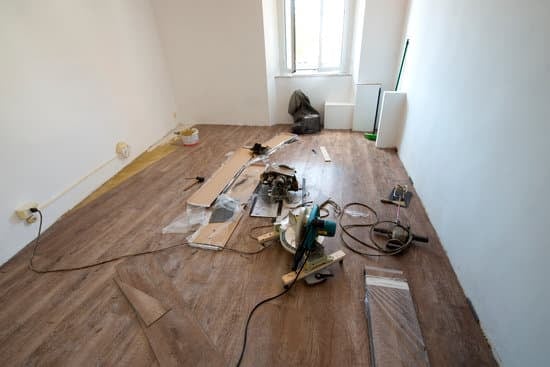Can i pay for home improvement from business account? The concept of using a business account for home improvement expenses is a topic that raises important legal and financial considerations.
It is crucial to understand the potential implications and consequences of using business funds for personal expenses, including home improvement projects. In this article, we will explore the legality and tax implications of paying for home improvement from a business account, as well as alternative financing options and the importance of seeking professional advice.
Using a business account for personal expenses such as home improvement may seem convenient, but it can have significant legal and financial repercussions. It is important to understand the boundaries between personal and business expenses, as well as the potential risks involved in using business funds for non-business purposes.
This section will delve into the legal and tax implications of using a business account for home improvement, shedding light on potential consequences and risks that individuals or businesses may face.
Furthermore, it is essential to have a clear understanding of what qualifies as a legitimate business expense when it comes to home improvement. Distinguishing between personal and business expenses is crucial in order to comply with IRS regulations and guidelines regarding business expenses. By defining the parameters of legitimate business expenses, individuals can make informed decisions about whether or not to use their business accounts for home improvement projects.
Can I Pay for Home Improvement From My Business Account?
Legal and Tax Implications
Using a business account for personal expenses, including home improvement, can have legal and tax implications. While it may be tempting to use business funds for personal use, it is important to understand the potential consequences.
The IRS has strict regulations regarding the use of business funds for personal expenses, and misusing business funds can result in penalties and legal repercussions. It is essential to consult with a tax professional or financial advisor to ensure that you are aware of the potential risks involved.
Understanding Business Expenses
It is crucial to distinguish between legitimate business expenses for home improvement and personal expenses. Legitimate business expenses typically include costs directly related to the operation of the business, such as office supplies, equipment, or marketing expenses. If the home improvement project is directly related to your business, such as renovations for a home office or retail space, it
Tax Considerations
When considering using a business account for home improvement, it is important to weigh the potential tax benefits and drawbacks. While certain home improvement expenses
Understanding Business Expenses
Legitimate Business Expense for Home Improvement
When considering whether to use a business account for home improvement expenses, it is crucial to understand what qualifies as a legitimate business expense. Typically, business expenses are costs that are necessary and ordinary for the operation of your business.
This can include repairs or renovations to your workplace or property that directly impact the functioning of your business. In the case of home improvement, only those expenses directly related to a home office or workspace used for business purposes can be considered legitimate business expenses.
Differentiating Between Personal and Business Expenses
It is important to carefully differentiate between personal and business expenses when considering using a business account for home improvement. Mixing personal and business expenses can lead to legal and financial implications, including potential tax issues and penalties. It’s essential to keep meticulous records and documentation of any home improvement expenses claimed as a business deduction to avoid any IRS scrutiny.
Consulting With an Accountant or Tax Professional
To ensure compliance with tax laws and regulations, it is highly recommended to consult with an accountant or tax professional before using a business account for home improvement expenses. They can provide expert guidance on what qualifies as a legitimate business expense, offer advice on record-keeping best practices, and help navigate the potential tax implications of claiming these expenses.
Seeking professional advice can i pay for home improvement from my business account ensures that you make informed financial decisions while avoiding any legal or tax consequences.
Tax Considerations
When it comes to using a business account for home improvement expenses, there are important tax considerations to keep in mind. While it may seem convenient to use business funds for personal projects, the IRS has strict guidelines on what qualifies as a legitimate business expense. In most cases, using a business account for personal expenses can result in serious tax implications and potential legal consequences.
One of the key factors to consider is whether the home improvement expenses can be classified as legitimate business expenses. The IRS defines a legitimate business expense as one that is both ordinary and necessary for the operation of your business. This means that the expense must be commonly accepted in your industry and directly related to the operation of your business.
It’s important to note that attempting to deduct personal expenses as business expenses can lead to serious repercussions. If audited, you could face penalties, fines, and interest on any unpaid taxes. Additionally, misclassifying personal expenses as business costs can raise red flags with the IRS and potentially trigger a full audit of your entire financial history.
| Tax Consideration | Key Details |
|---|---|
| Legitimate Business Expense | Must be ordinary and necessary for the operation of the business |
| Potential Repercussions | Penalties, fines, interest on unpaid taxes, and potential full audit by the IRS |
Alternatives to Using a Business Account
While using a business account for home improvement expenses may seem like a convenient option, there are potential legal and tax implications to consider. If you’re wondering “can I pay for home improvement from a business account,” it’s important to explore alternative ways to finance your projects. Here are some alternatives to using a business account for home improvement:
- Personal Savings: One option is to use your personal savings to fund your home improvement projects. This allows you to avoid any potential legal or tax issues associated with using a business account for personal expenses.
- Personal Loans: Another alternative is to take out a personal loan specifically for home improvement purposes. This allows you to keep your personal and business finances separate, avoiding any potential complications.
- Home Equity Loan or Line of Credit: If you own your home, you may be able to tap into the equity through a loan or line of credit specifically designed for home improvements. This can provide you with the funds needed while keeping your business finances untouched.
Considering these alternatives not only helps you avoid potential legal and tax implications but also ensures that you are making informed financial decisions regarding your home improvement projects.
It’s important to carefully evaluate each option and consider factors such as interest rates, repayment terms, and overall financial impact before making a decision. Consulting with a financial advisor can also provide valuable insight into which financing option aligns best with your financial goals and circumstances.
Ultimately, by exploring alternatives to using a business account for home improvement expenses, you can make more informed and responsible financial decisions while avoiding potential risks and consequences.
Consult a Financial Advisor
It is important to understand the legal and tax implications of using a business account for personal expenses, including home improvement projects. While it may seem convenient to use funds from a business account for personal purposes, this can raise serious legal and tax issues. Consulting a financial advisor can provide valuable insight into the potential risks and consequences of using business funds for personal expenses.
A financial advisor can help clarify what qualifies as a legitimate business expense for home improvement and differentiate between personal and business expenses. They can also explain the potential tax benefits and drawbacks of using a business account for home improvement, as well as provide guidance on IRS regulations and guidelines regarding business expenses.
Seeking professional advice before using a business account for personal expenses is crucial in order to avoid potential legal and financial repercussions. A financial advisor can offer personalized recommendations based on individual circumstances, as well as alternative ways to finance home improvement projects that may be more suitable than utilizing a business account. Ultimately, consulting a financial advisor can provide essential clarity and guidance when contemplating paying for home improvement from a business account.
Case Studies
Using business funds for personal expenses, such as home improvement projects, can have serious legal and financial consequences. One case study that exemplifies this is the story of a small business owner who used company funds to renovate his home office.
Despite the seemingly legitimate justification of improving his work environment, the IRS audited his business and found that these expenses were not directly related to the operation of the company. As a result, he faced significant penalties and had to repay the misused funds with interest.
In another case, a freelance contractor used their business account to pay for a kitchen remodel, arguing that it would improve their ability to entertain clients at home. However, this was ultimately deemed an unauthorized use of business funds by the IRS. Consequently, they were subject to back taxes and penalties for failing to properly categorize personal expenses as such.
It is important to consider these real-life examples when contemplating using a business account for home improvement. Seeking professional advice from a financial advisor before making any decisions regarding funding personal projects through a business account is highly recommended. Understanding what qualifies as a legitimate business expense is crucial in order to avoid potential legal and financial repercussions.
| Case Study | Consequences |
|---|---|
| Small Business Owner Home Office Renovation | IRS audit, penalties, repayment with interest |
| Freelance Contractor Kitchen Remodel | Back taxes, penalties for misusing business funds |
Conclusion
In conclusion, the decision to pay for home improvement from a business account is not one that should be taken lightly. While it may seem convenient to use business funds for personal expenses, it is essential to understand the legal and tax implications of doing so. The potential consequences and risks of misusing business funds for home improvement can have serious ramifications, including legal and financial repercussions.
It is crucial to differentiate between legitimate business expenses for home improvement and personal expenses when using a business account. Understanding IRS regulations and guidelines regarding business expenses is essential in avoiding potential tax issues. Additionally, exploring alternative ways to finance home improvement projects, such as personal finance options or loans, can provide viable alternatives to using a business account.
Seeking professional advice from a financial advisor before making decisions involving a business account can provide valuable insights into the potential risks and consequences. Real-life case studies serve as cautionary tales about the pitfalls of misusing business funds for personal expenses. By understanding the legal and tax implications and seeking expert advice, individuals and businesses can make informed decisions when contemplating using a business account for home improvement expenses.
Frequently Asked Questions
Can I Borrow From My IRA for Home Improvement?
Yes, you can borrow from your IRA for home improvement purposes, but there are certain rules and regulations that must be followed. You may face penalties and taxes if not done correctly.
What Is a Renovation Loan?
A renovation loan is a type of loan specifically designed for home improvements and renovations. It allows homeowners to finance the cost of their renovation projects without having to use high-interest credit cards or personal loans.
Can I Add to My Mortgage for Home Improvements?
Yes, it is possible to add to your mortgage for home improvements through a cash-out refinance or a home equity line of credit (HELOC). This allows you to leverage the equity in your home to fund renovation projects with lower interest rates than other borrowing options.

I’m thrilled to have you here as a part of the Remodeling Top community. This is where my journey as an architect and remodeling enthusiast intersects with your passion for transforming houses into dream homes.





